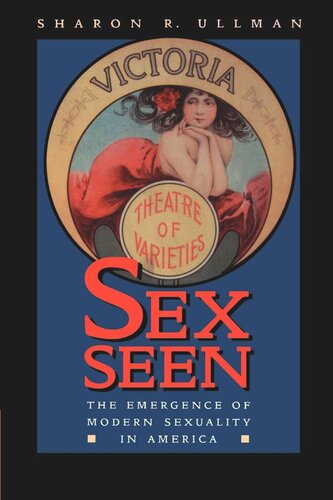

Most ebook files are in PDF format, so you can easily read them using various software such as Foxit Reader or directly on the Google Chrome browser.
Some ebook files are released by publishers in other formats such as .awz, .mobi, .epub, .fb2, etc. You may need to install specific software to read these formats on mobile/PC, such as Calibre.
Please read the tutorial at this link: https://ebookbell.com/faq
We offer FREE conversion to the popular formats you request; however, this may take some time. Therefore, right after payment, please email us, and we will try to provide the service as quickly as possible.
For some exceptional file formats or broken links (if any), please refrain from opening any disputes. Instead, email us first, and we will try to assist within a maximum of 6 hours.
EbookBell Team

4.7
26 reviewsSex Seen provides a complex and intriguing account of the changes that have taken place in the social construction of sexuality during the past century. Focusing on Sacramento, California, at the dawn of the twentieth century, Sharon Ullman juxtaposes early cinema, vaudeville performances, and popular newspapers and magazines with insights drawn from close interpretations of transcripts from Sacramento court cases. She demonstrates how attitudes that emerged in the popular discourse—ideas about gender roles, female desire, prostitution, divorce, and homosexuality—often found complex and contradictory expression in the courts. As judges, prosecutors, defense attorneys, and juries all weighed in with differing opinions, the courtroom itself became a site of multiple discourses that attempted to make sense of a growing sexual chaos. In tracing the birth of modern sexuality, Ullman chronicles the dynamics of social change during a unique cultural moment and explains the shifts in the sexual ethos of turn-of-the-century America. Instead of telling the familiar story of steadily increasing liberation of sexual urges, Ullman chronicles the complex confusions and negotiations of an increasingly public sexual discourse. She relates how laws against cross-dressing gained force at the same time that female impersonation became popular in vaudeville acts, how images of prostitutes were changed by the commercialization of the female body in advertising and film, and how visible expression of female desire was submerged in rape and divorce proceedings. Ullman blends social history, textual analysis, and film and performance criticism to explain how sexuality and desire became an essential part of personal identity in this century. Her keen, accessible account of a community on the brink of the modern era offers a provocative interpretation of the seeds of our sexual present.